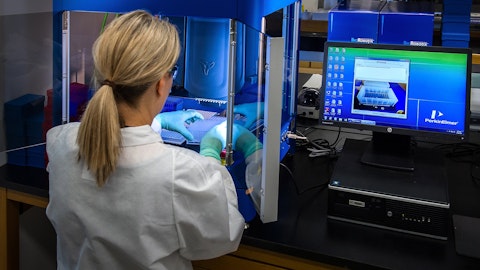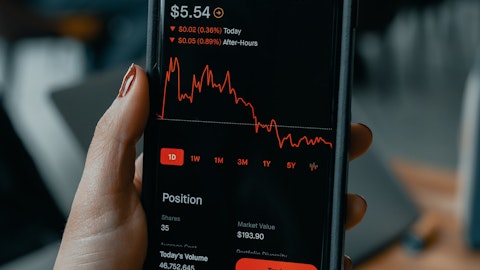In the second half of the year, we expect to initiate the Phase I study of ADCT-701 targeting DLK 1. Next year, we will complete the enrollment of our LOTIS-5 confirmatory study in the second-line setting. We will also share some preliminary results from our LOTIS-9 and LOTIS-7 studies next year. In terms of the pipeline, in the first half of 2024, we expect to share preliminary data from ABCT-901 targeting CAG 1 and ADCT-601, targeting AXL. We also expect to initiate the Phase I study of ADCT-212, targeting PSMA and for our partner, MD Anderson to complete the Phase I dose expansion study for ADCT-602 targeting CD22. So, a number of different milestones across the company, both with ZYNLONTA and our pipeline. And of course, we’re continuing to advance our technology platform.
With that, I will turn the call back to Ameet for closing remarks. Ameet?
Ameet Mallik: Thank you, Kristen, Mohamed and Pepe. To conclude, we have a clear road map and the capabilities to execute in 2023 and to build ADC therapeutics for years to come. We are uniquely positioned in the growing ADC space with specialist capabilities from discovery through to commercialization and have over a decade of experience. We have a validated technology platform, a rich pipeline of hematological and solid tumor programs and an innovative toolbox to develop next-generation assets with novel antibody constructs and payloads. And last but not least, we have a strengthened and highly talented team in place to execute on our strategies. We look forward to keep updated on our ongoing progress. Now the team will be available for questions. Operator?
Operator: Kelly Shi with Jefferies is online with a question. Please go ahead.
Kelly Shi: Thank you, for taking my question. The first is regarding the OpEx. Can you share more details on the OpEx reduction in 2023? And where do you plan to cut the cost from? And how should we think about magnitude of the planned cost reduction? And I have a follow-up.
Pepe Carmona : Hi, Kelly, thanks for the question. So, we expect to reduce costs compared to 2022 for both years 2023 and 2024. On the R&D line, you should expect a reduction because we are focusing our resources in the most impactful and higher return on investment projects that we have in the pipeline. As you know, we have discontinued several projects that will could see the less attractive. Some of them might end up being potentially partner like coming. And on the SG&A side, we are driving productivity. We have an entire new team that have looked at the company cost structure with fresh eyes. So, we believe there’s significant opportunity to reduce costs year-over-year. The second question, I couldn’t hear you. Tie on something else.
Kelly Shi: Thank you. Yes. I also have a question regarding the ADCT-601 program targeting AXL. Do you plan to screen patients with positive AXL expression level for the dose escalation phase for also a sarcoma and non-small cell lung cancer custodies only applied to other tumor indications? And also, what is the rationale for the combo arm with gemcitabine in sarcoma? And also, what information do we have regarding 601 profile at the moment? Thank you.
Mohamed Zaki: Thanks for the question. And we do or are planning to collect biopsies for all patients currently enrolled in the study in order for us to possibly test retrospectively for AXL expression. The current protocol right now does not select patients, and the assay is being developed in parallel. As I mentioned, what is ready, we’ll be able to test patients for expression. In terms of the combination with gemcitabine and gemcitabine is very active and considered one of the standard of care used in sarcoma. So, it’s naturally to combine as an add-on strategy in the combination and see that we can improved standard of care for hopeful future studies, from a regulatory perspective to be able to isolate the effect of the drug. So, what was the third question, sorry?


